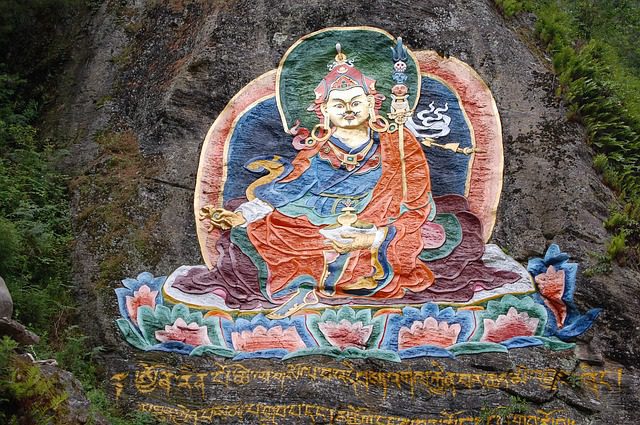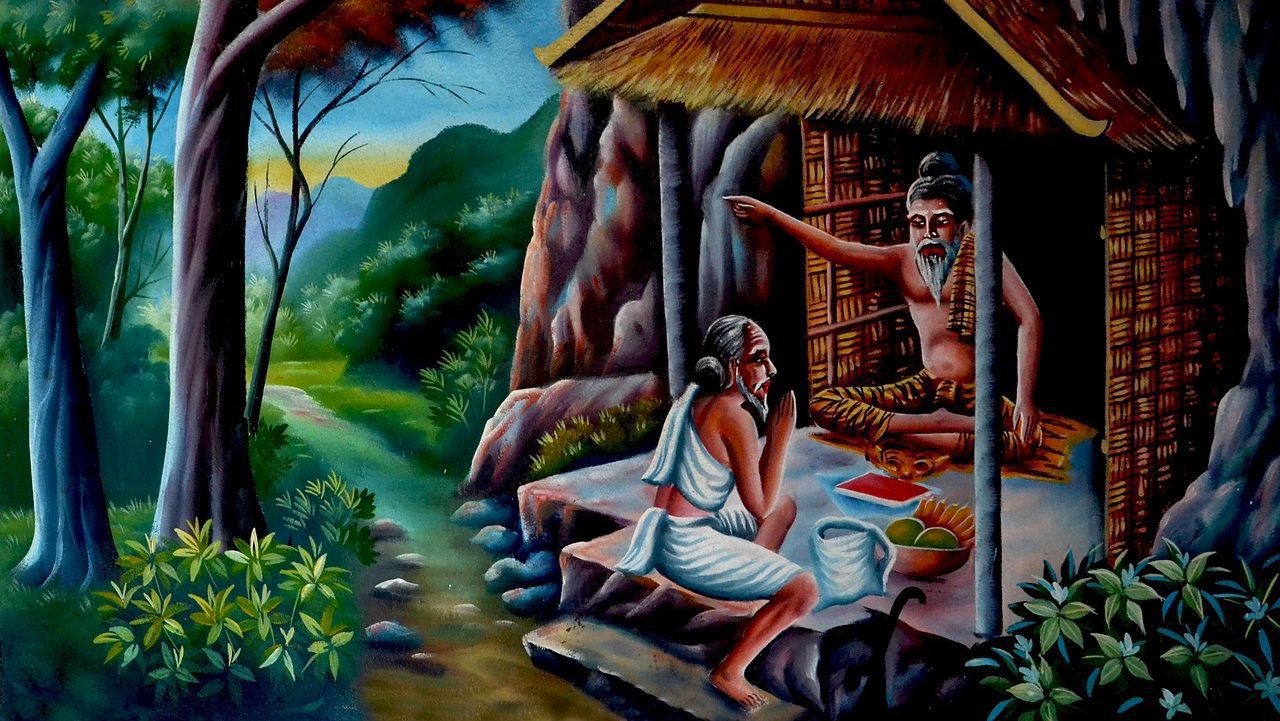There is an enormous amount of respect for a teacher or Guru in Indian Culture, from Vedas to Hindu, Sikh and Jain scriptures all mention the importance of teacher in our respective lives. Guru Purnima festival is a dedication to the great spiritual and academic teachers, ready to share their wisdom, without any expectations, based on Karma Yoga.
The celebration of Guru Purnima involves spiritual activities and also includes a ritualistic event in honor of the Guru. It is believed across Indian culture that “The Guru Principle” is multiple times more active on the day of Guru Purnima than on any other day in the year.
Guru the remover of darkness and ignorance of life
The word Guru is derived from two words, Gu and Ru. The Sanskrit root Gu means darkness or ignorance, and Ru denotes the remover of that darkness.
Therefore, a Guru is one who removes the darkness of our ignorance. It is noteworthy that in almost all Indian traditions, Gurus along with God and both parents form the 4 most important entities in life.
Celebration of Guru Purnima

The day of Guru Purnima is all about paying respect and offer Pooja to one’s Guru, the spiritual guide in life. In addition to having religious importance, this festival has great importance for Indian academics and scholars too. Indian academics celebrate this day by thanking their teachers as well as remembering past teachers and scholars.
“Guru Brahma, Guru Vishnu, Guru Devo Maheshwarah, Guru Sakshat ParBrahm, Tasmai Shri, Guruve Namah” the mere chanting of this Guru Mantra, where the Guru or Teacher is placed along with the three Lords of the cosmos (trinity) reveals the importance of Guru in one’s life.
Like some other Indian festivals, Budh Purnima is celebrated by Hindus, Jains, Buddhists, and Sikhs together on the same day. However, the legends and sometimes reasons for celebration differ. For e.g. Buddhist celebrate Guru Purnima in the honor of Lord Buddha who is believed to have given his first sermon on the day of Guru Purnima in Sarnath of Uttar Pradesh, India.
The Sikhs observe it as an honor to their Ten Spiritual Gurus.
Yogic Tradition

The Yogic traditions the festival is celebrated as the day when Shiva became the first Guru, termed as Adi Guru (First Guru).
There is an extraordinary story of the legend of Adi Yogi which makes this day one of the most important one in Yogic traditions. The story goes that over 15,000 years ago, an unknown yogi suddenly appeared in the upper regions of the Himalayas. People gathered to see the extraordinary presence of the Yogi only to notice that he does not show any signs of life.
The crowd soon begins to disassemble but seven men still stayed on. When he opened his eyes, they pleaded with him, wanting to experience whatever was happening to him.
He dismissed them, but they persevered. Finally, he gave them a simple preparatory step and closed his eyes again. The seven men began to prepare. Days rolled into weeks, weeks into months, months into years, but the yogi’s attention did not fall upon them again.
After 84 years of sadhana, on the summer solstice that marks the advent of Dakshinayana, the earth’s southern run, the yogi looked at them again. They had become shining receptacles, wonderfully receptive. He could not ignore them anymore. On the very next full moon day, the yogi turned south and sat as a Guru to these seven men. Shiva, the Adiyogi (the first yogi) thus became the Adi Guru. Adiyogi expounded these mechanics of life for many years. The seven disciples became celebrated as the Saptarishis and took this knowledge across the world.
Guru Purnima is held sacred in the yogic tradition because the Adiyogi opened up the possibility for a human being to evolve consciously. The seven different aspects of yoga that were put in these seven individuals became the foundation for the seven basic forms of yoga, something that has still endured.
Ved Vyasa and Vyasa Purnima
For Hindus, this day is celebrated in honor of the great sage Vyasa, who is seen as one of the greatest Gurus in ancient Hindu traditions and a symbol of the Guru-Shishya tradition.
He was not only believed to have been born on this day but also to have started writing the Brahma Sutras on Ashadha Sudha Padyami, which ends on this day. Their recitations are a dedication to him and are organized on this day, which is also known as Vyasa Purnima. The festival is common to all spiritual traditions in Hinduism, where it is an expression of gratitude toward the teacher by the disciple.
Hindu ascetics and wandering monks (Sanyasis), observe this day by offering puja to their Guru, during the Chaturmas, a four-month period during the rainy season, when they choose seclusion and stay at one chosen place; some also give discourses to the local public. Students of Indian classical music and Indian classical dance, which also follow the Guru Shishya Parampara, celebrate this holy festival around the world.
Different legends and reasons for celebration but one great lesson
India culture is predominantly a culture of knowledge seeker, not inherently faith-based believers. For a seeker one of the most important individuals is the teacher or Guru. Guru Purnima is no ordinary festival but a festival that highlights the conquest to seek answers and enlighten the inner self to see beyond the norm.



